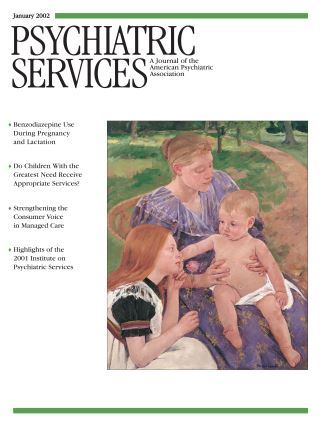To the Editor: We have been distressed over the years by the number of older children and adolescents referred to us with the sequelae of untreated attention-deficit hyperactivity disorder (ADHD): school failure, social ostracism, family alienation, low self-esteem, and sometimes drug abuse and delinquency. Their history often included treatment with methylphenidate or dextroamphetamine that was effective for a while but then became ineffective. In treating these patients, we found that higher dosages were effective and that years of treatment had thus been lost. Sometimes the larger dosages were in excess of 60 mg of methylphenidate or 40 mg of dextroamphetamine a day, the highest recommended in the Physicians' Desk Referenceand the Canadian Compendium of Pharmaceuticals and Specialties. Many physicians would be hesitant to prescribe such large dosages.
Others have noticed this phenomenon. In 1973 Wender (
1) wrote, "The principles of medication of stimulant drugs are analogous to those employed with digitalis. One should begin with the lowest expectable effective dose and increase the agent until either an optimal response is reached or side effects become troublesome."
An effective dosage cannot be calculated on the basis of weight alone. The symptoms of heavy children can sometimes be controlled with low dosages, and some light children may need high dosages. Biochemical geneticists have focused on a new area of research, genetic predisposition, which is concerned with how genetic factors can account for variations in individual sensitivity to a drug (
2).
To quantify our impressions, we decided to examine the charts of a number of patients treated with methylphenidate between 1976 and 1990. If tolerance to methylphenidate developed, children were treated with dextroamphetamine. The sample consisted of 166 children and adolescents with a
DSM-III diagnosis of ADHD—117 males and 49 females—who were treated at a practice in Windsor, Ontario, and whose charts were selected randomly from an alphabetical list. Most were of British or French ancestry, and most were from blue-collar families (Hollingshead's class 4) (
3).
Of the 166 patients, 68 (41 percent) required more than 60 mg of methylphenidate a day, either initially or later in treatment. Among the 68 patients, 36 (52 percent) developed anorexia, 26 (39 percent) developed insomnia, and 41 (60 percent) developed tolerance to the medication, or failure to maintain a clinical response to the same dosage. Among the 98 patients who were taking less than 60 mg of methylphenidate a day, nine (9 percent) had anorexia, 16 (16 percent) had insomnia, and none developed tolerance. As Winsberg and associates found previously (
4), tolerance developed only among children in our sample who were receiving more than 60 mg of methylphenidate or 40 mg of dextroamphetamine a day. For some of our patients, tolerance developed within a few days, and among others it took more than a year.
For patients taking methylphenidate who became tolerant, we tried other drugs, starting with dextroamphetamine, and then we used the drug that produced the best response. If the substitute was less effective than methylphenidate, the latter would be tried again after a month. In many cases, tolerance disappeared after a month, and methylphenidate's original effectiveness was restored. The newfound effectiveness would often last the same amount of time as the original.

